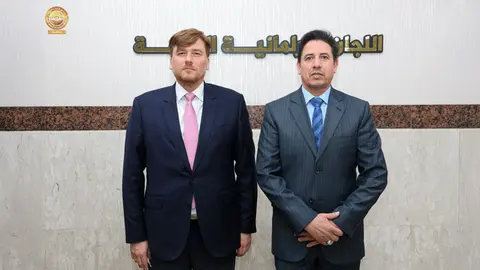Libya offers to strengthen ties of collaboration with Spain
Libya's Foreign Minister, Dr. Abdul Hadi Al-Hawaij, wants to overcome the problems with Spain following the visit to Benghazi of the Spanish ambassador to Libya because: ‘the Libyan plane is about to take off and the Spanish government does not have a boarding pass’
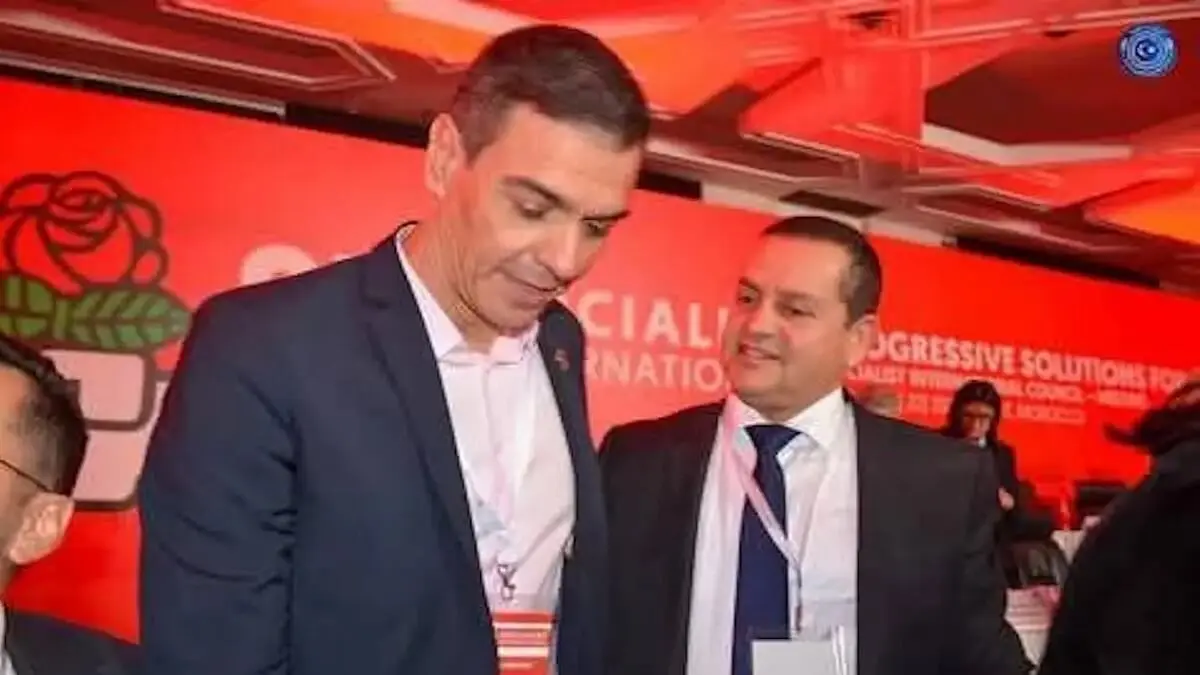
The appreciation that the Libyans show for the Spanish is well known and is evident wherever we visit in the country.
During the meetings held in Benghazi with Libyan authorities in Parliament, in the Mayor's Office, in the Chamber of Commerce, in universities, in the media, in the Ministry of Foreign Affairs and other institutions, we have seen the need to overcome biased information about the reality of Libya at the moment, in the process of recovery and reconstruction after years of war following the fall of Gaddafi and the arrival of ISIS terrorists.
The key to peace, stability and security in almost all of Libya, 80%, is the professional work of the Libyan National Army under the command of Marshal Khalifa Haftar, to whom everyone shows their gratitude for being the basic pillar of having recovered normality, under the authority of the recognised and only Parliament in all of Libya and the Government. Political unity is lacking because the government in Tripoli, which controls barely 20% of the territory, refuses to leave power as planned after the elections.
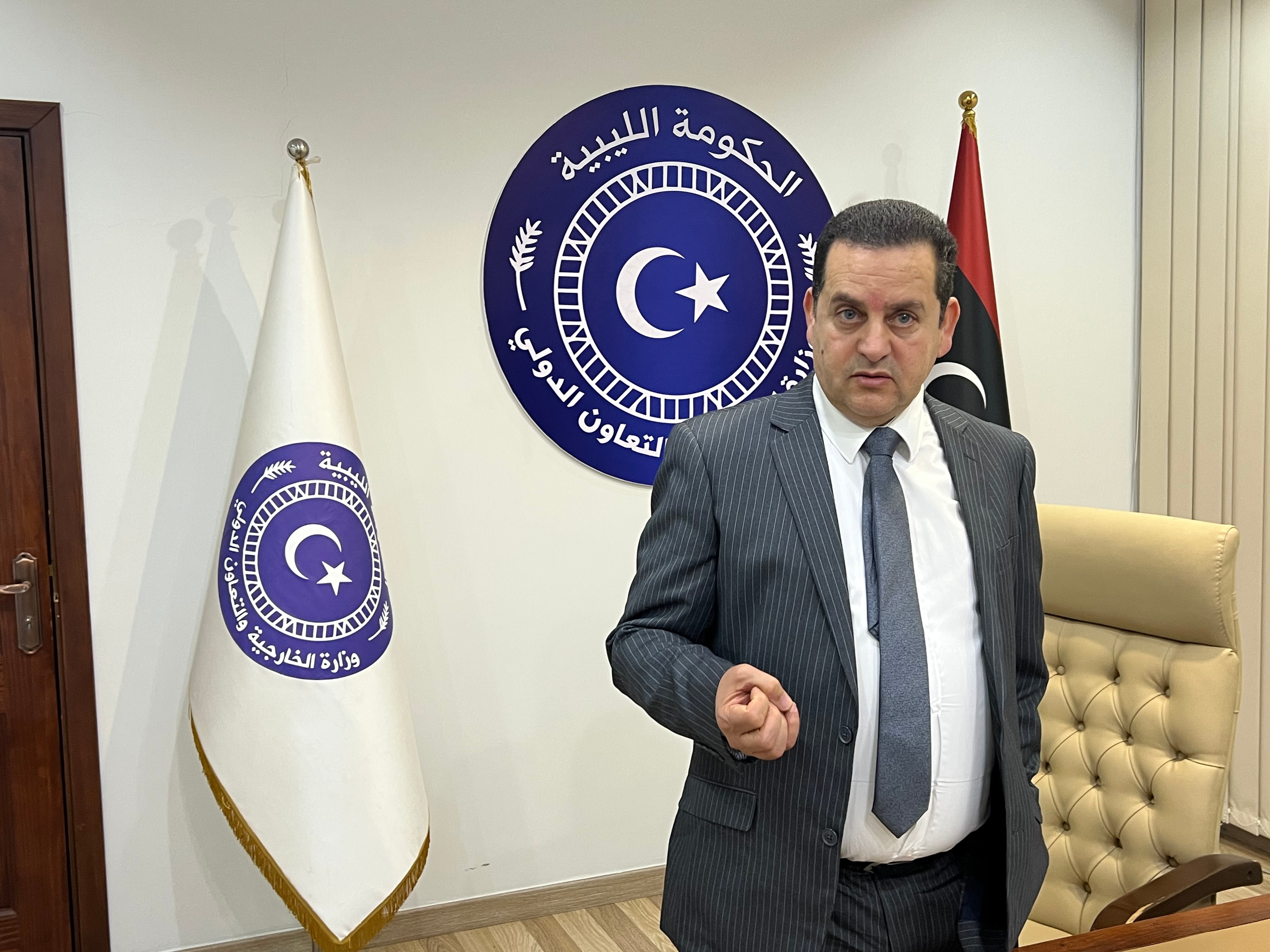
We are received by the Libyan Foreign Minister, Dr, Abdul Hadi Al-Hawaij, and the first question is: How is the situation in Libya right now?
I was born and raised in Tripoli. Then I lived abroad with my diplomatic family for a decade. But when I decided to return, I came back to Benghazi instead of Tripoli. In Benghazi we enjoy the rule of law, there is security, we have a constitution... These days you have had the opportunity to move around Benghazi with total freedom, to talk to the people. That is why it is important that you tell, through your media, the reality that you have experienced in these days, to refute the intoxications that circulate in Spain.
Even the Spanish ambassador has apologised to us and to the military institution. He knows that the Libyan Armed Forces depend on the Constitution and the Libyan Parliament. That's why saying that the Armed Forces are not legal is like saying that the Parliament is not legal either.
How are relations with Spain?
The Libyan people love the Spanish people, they respect them and they feel closer to them in terms of feelings and culture than to other European countries. And I think that the Spanish people also feel a lot of sympathy for the Libyan people.
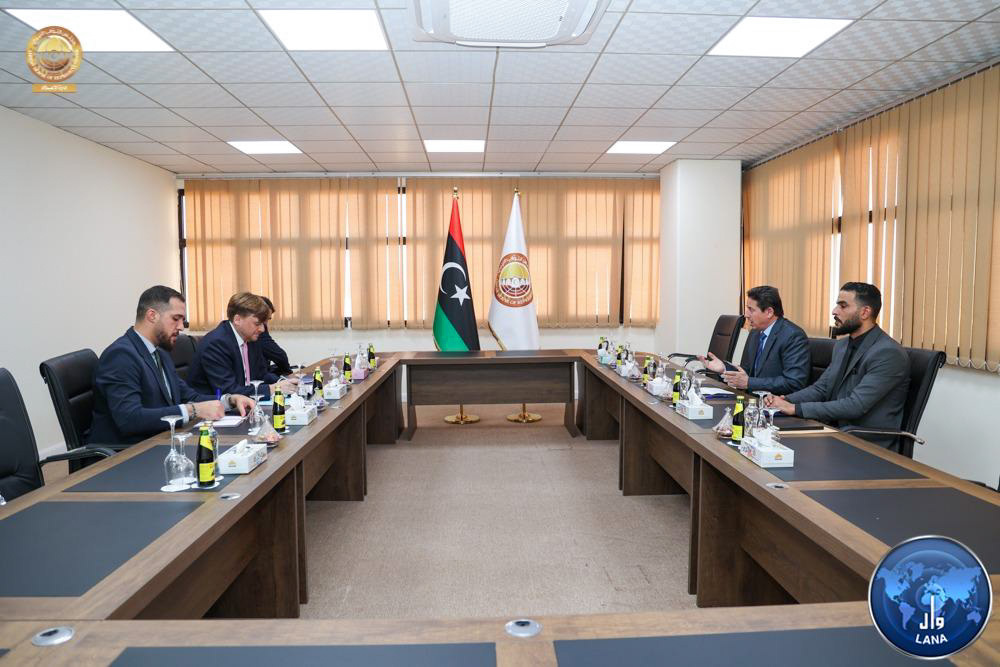
Has the visit of the Spanish ambassador, Javier Soria, to Benghazi and his political contacts helped to overcome some of the difficulties?
The visit of the Spanish ambassador came about after the fruitful meeting we had with President Pedro Sánchez in Rabat. And his desire is, in addition to the ambassador's visit, to broaden the relationship with institutional visits to the Parliament and to economic institutions.
The ambassador reaffirmed Spain's commitment to continue supporting Libya on its path towards stability and development. His presence in Benghazi marks an important step in strengthening bilateral relations between Libya and Spain, reflecting the mutual interest in political stability, economic cooperation and regional security.
What is the problem with the Spanish Civil Guard?
The Spanish Civil Guard is a security institution that has become a political institution, by daring to talk about the Libyan National Army, a military institution recognised by Parliament and the Government, and to describe it as ‘a militia’. This has touched a raw nerve both for the Government and for the Libyan people themselves: it is an institution that has saved our country from terrorism and many other problems, it has helped the people. Thanks to them illegal immigration has been avoided and, right now, they are working side by side with the Libyan Government for the reconstruction, stability and security of the country.
We don't want anyone to invent anything: we are only asking them to adopt a neutral stance, like that of the rest of their European counterparts and like that of most countries in the world. Relations should be based on friendship, common interest and mutual respect. But what we do not accept is what the Civil Guard did and reported, because they have touched an institution that the Libyan people respect and love. And, furthermore, it is not true.
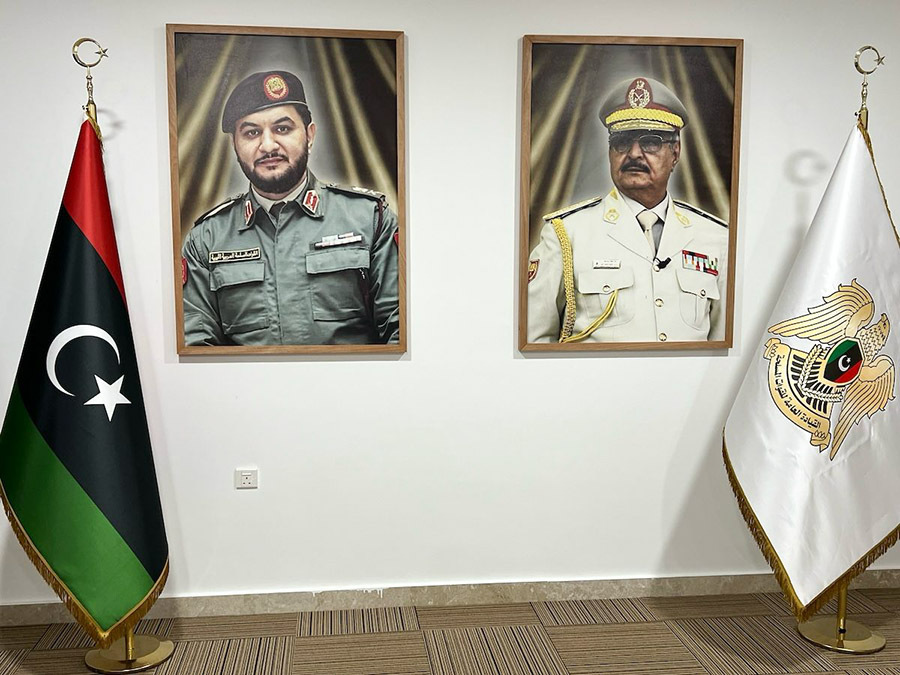
Could a possible visit by Pedro Sánchez to Benghazi be on the agenda after the conversation he had with you in Rabat?
There is a good chance that he will come too. We don't want Spain to be left behind, because the plane is about to take off and we don't want them to be the last ones on board. Every week we receive diplomatic and trade delegations from European and American countries: from France, from Turkey... The basis of our government is that we don't want to have problems with any country in the world.
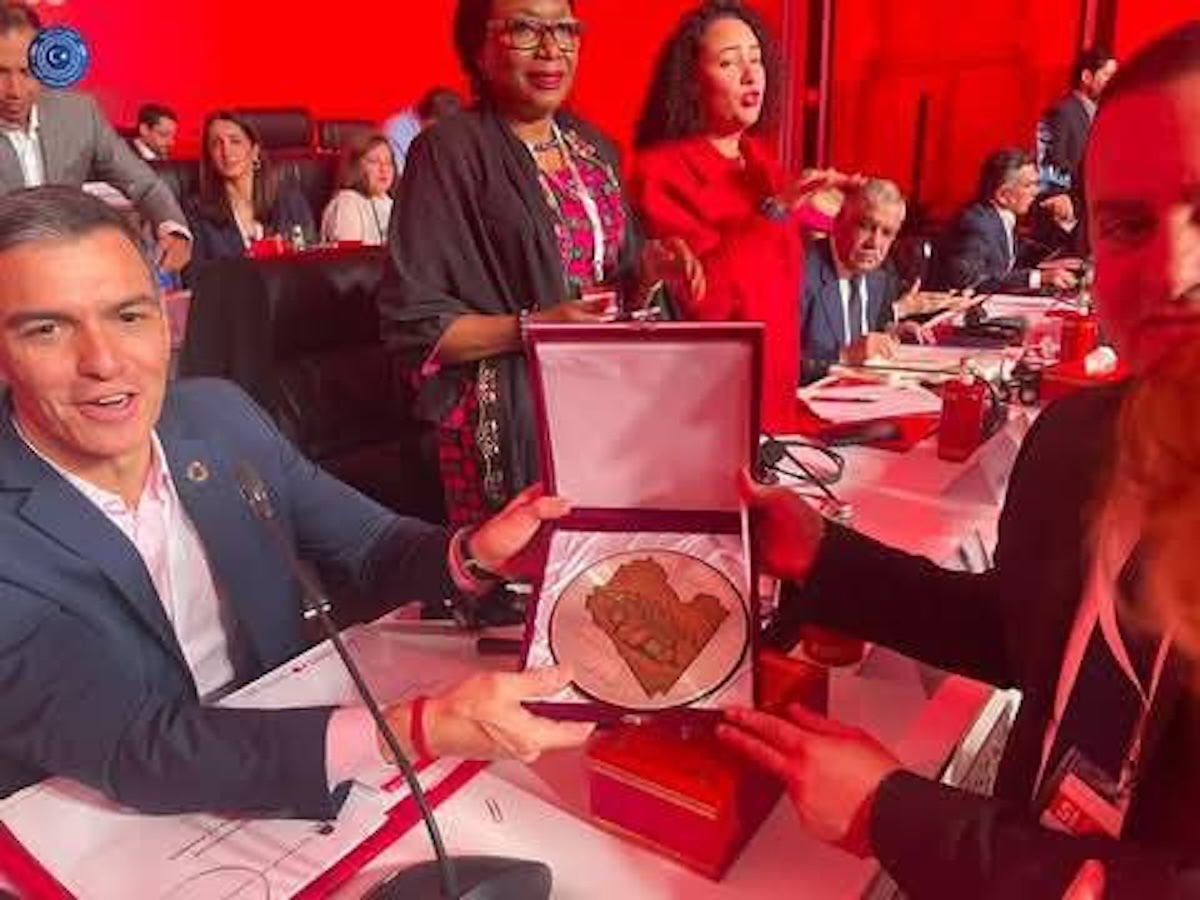
Do the companies that had to leave Libya have the possibility of returning?
Most definitely. We want to organise a meeting in Benghazi or in Madrid. We are prepared and we extend our hand to Spain, to its government and to its people. But it will not be possible to restore this relationship without the consideration and respect that the military institution deserves.
What do you demand from the Spanish government in order to settle this problem and to resume Spanish-Libyan relations in all senses?
We have never said that the Spanish army is illegal, nor have we supported the separatists in the Basque Country. And we have not spoken about Catalan separatism or Puigdemont, who is in Brussels. We have never intervened in the internal affairs of the Kingdom of Spain. What we want is for Spain, for the Spanish authorities, to know the truth of this matter.
Traditional diplomacy through embassies is no longer the only form. There are other ways of doing diplomacy, like the one you do: the diplomacy of information, of communication. Or economic diplomacy, parliamentary diplomacy.... So what we ask is that you let us build the bridge between the two shores. We love that the Spanish business community is here more than the others, because of the cultural relations that unite us.

I'm going to tell you the truth, but don't be angry: the plane is about to take off and the Spanish government still doesn't have a boarding pass. We have had meetings with the Italian ambassador, and Italian classes are going to start being taught in schools. On the other hand, there is no presence of the Spanish language: why don't we have a Cervantes Institute here, to teach Libyan citizens to speak Spanish? You would have to look hard to find a Libyan who speaks Spanish, there's one in a thousand. That is a tremendous failure of traditional ambassadorial diplomacy. And it has to change.
Is it a mistake for the Spanish government to wait until there is only one government in Libya before getting on the plane, before getting that boarding pass?
The economy is not about colour, it's not about politics. Any company that comes from Spain to invest will be welcome. We ask them to get the business community moving. There's no need to wait for political decisions. Libya today is a mega-project in which everyone can participate. There are giant infrastructure projects that constitute an enormous opportunity for the Spanish government and Spanish companies.
You have the experience, you have the competence, you have the quality and the culture that unites us on both shores of the Mediterranean. But, honestly, there is France, there is the United States, there is Italy, there is China...
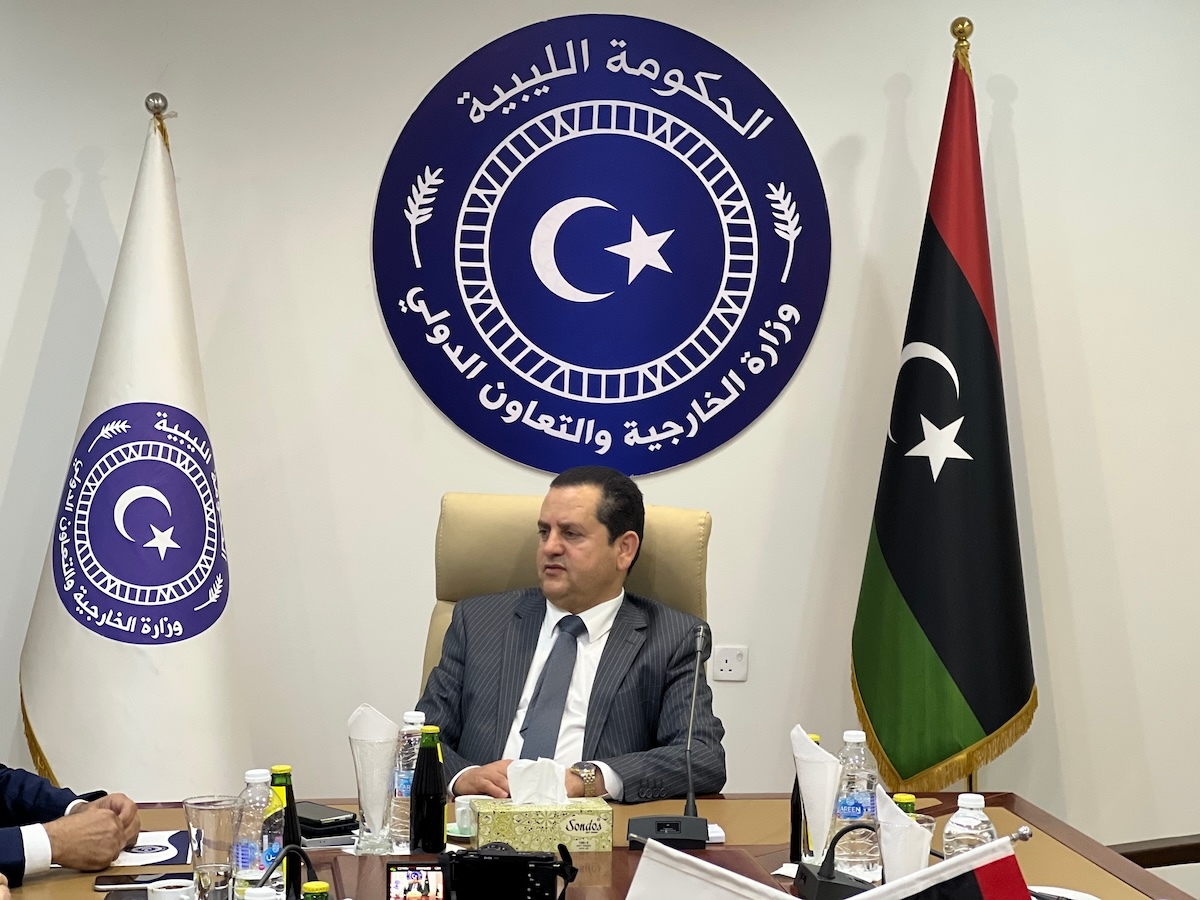
The United Nations recognises the Government of Tripoli and you are holding talks in Morocco with representatives of Tripoli with a reconciliation law already in place. Is it optimistic to think that there will be a single government in Libya in a short space of time?
Who is a member of the United Nations Permanent Commission? France, who is there, with the United Nations, and also here, in Benghazi. A Libyan-French economic forum was recently organised here. They want peace. And we want peace. Our objective is national reconciliation, economic development, good education, good healthcare for Libyans and to work so that the new generations can live in peace and freedom.
The Libyan Parliament is in Benghazi and has declared national reconciliation. This decree is in line with what you have asked, because we are optimistic about reconciliation and national unity. Libya is one and it is not broken or divided.
Libya is not for one area, yes, and for another area, no. We want a Libya that has national sovereignty, territorial integrity, that protects its borders, that safeguards personal freedoms, that also safeguards the freedom of women, that believes in human rights, that has no prisons, that has no immigration, that has no human trafficking and that fights against organised crime and drugs. This is not going to be done by angels, of course. This is going to be done by the Armed Forces. And, furthermore, supervised by the Government of Libya that has been elected by the people of Libya. And, furthermore, with the relevant services for the security of Libya.
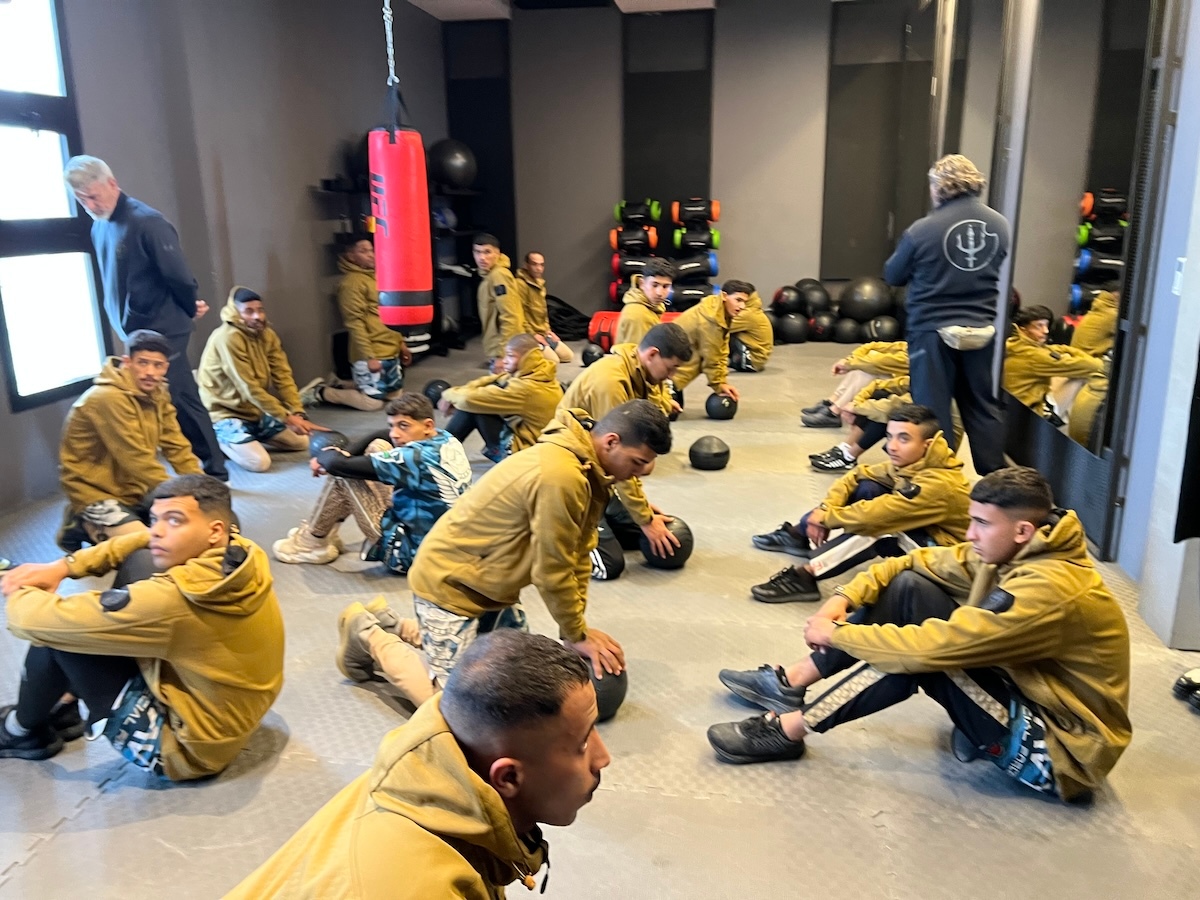
What measures are you taking with regard to illegal immigration?
This Government belongs to the Mediterranean basin, which we want to be a space of peace. The Libyan coastline stretches for 2,000 kilometres, from Tunisia to the border with Egypt. Of those 2,000 kilometres, we control 1,500. Have you heard or read that any boats have left this part of the coast? The answer is no. Are these coasts protected by angels? The answer is no. Our angels are the military and the institutions of the State. And what about the other 500 kilometres? Every day, some illegal boats do manage to set sail. Some arrive, others don't. The Mediterranean basin is full of corpses.
And all this without the European Union having supported or organised manoeuvres to train the Libyan Army in the protection of its coasts; nor have they offered us resources or logistical support. On the other hand, hundreds of millions of euros have gone to Tripoli. And the result is a large number of immigrants: the Tripoli authorities allow boats to leave, they traffic immigrants... and they are offered equipment, money and logistics. It's an unbalanced equation.
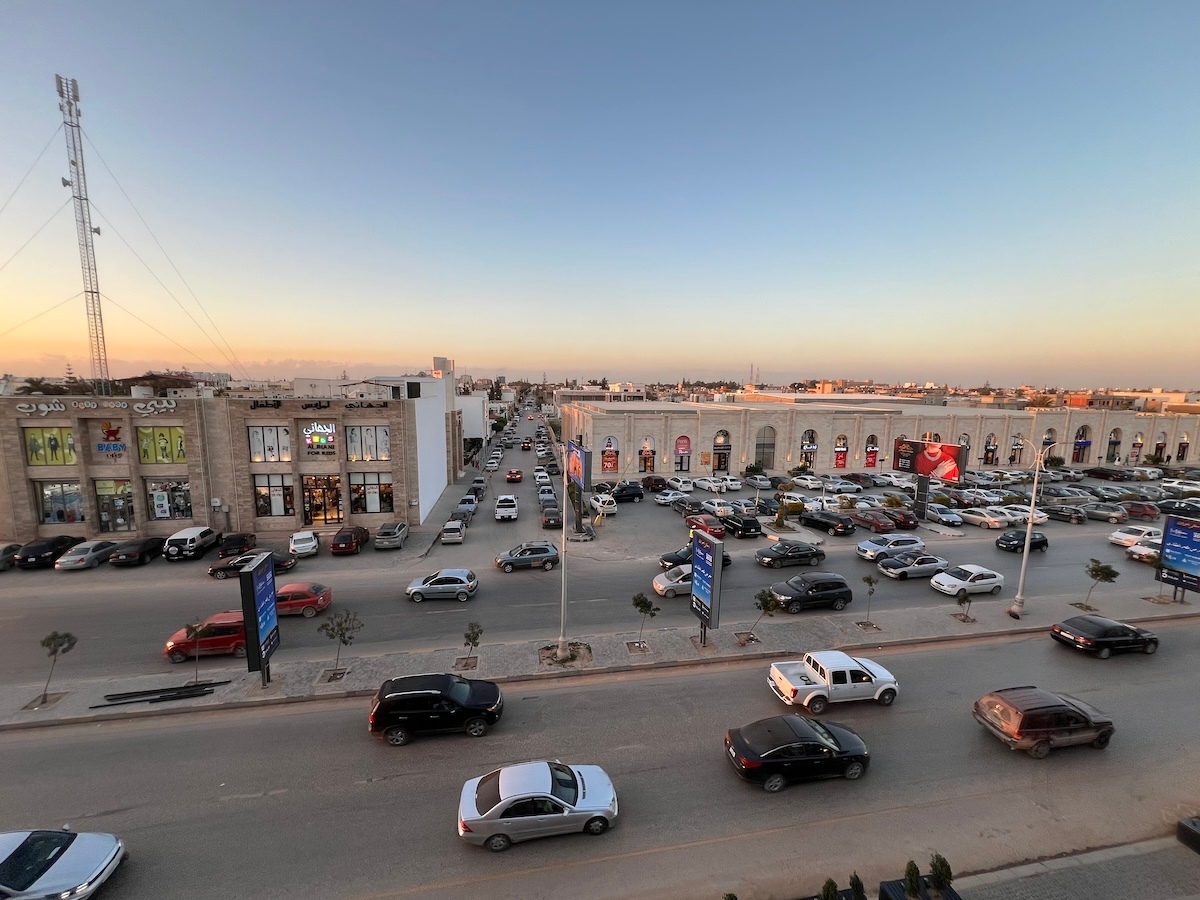
Given the good relations with Italy, could the Italian government play a mediating role in favour of reconciliation?
This question can be answered by the Italian government. It is not in Italy's interest for there to be reconciliation because it takes advantage of the situation. Meloni has visited us many times for one simple reason: he looks after the economic interests of Italy, of its companies and of the people. The Italian ambassador works on both sides: in Benghazi and in Tripoli. The Italian embassy has a consulate in Benghazi, which provides visas to Libyan citizens, and acts as an interlocutor in the business world between Italy, Libya and Benghazi. In addition, as a first, I can tell you that very soon we will have a direct airline between Rome and Benghazi.
Despite all the problems we have had with Turkey, we have daily flights between Turkey and Benghazi. The Turkish consulate offers all the services, as do other countries such as Malta or Greece. We also want to have a Spanish consulate and an economic representation of Spain in Benghazi. I trust that you will pass on everything you have seen here and help raise the Spanish flag in Benghazi.
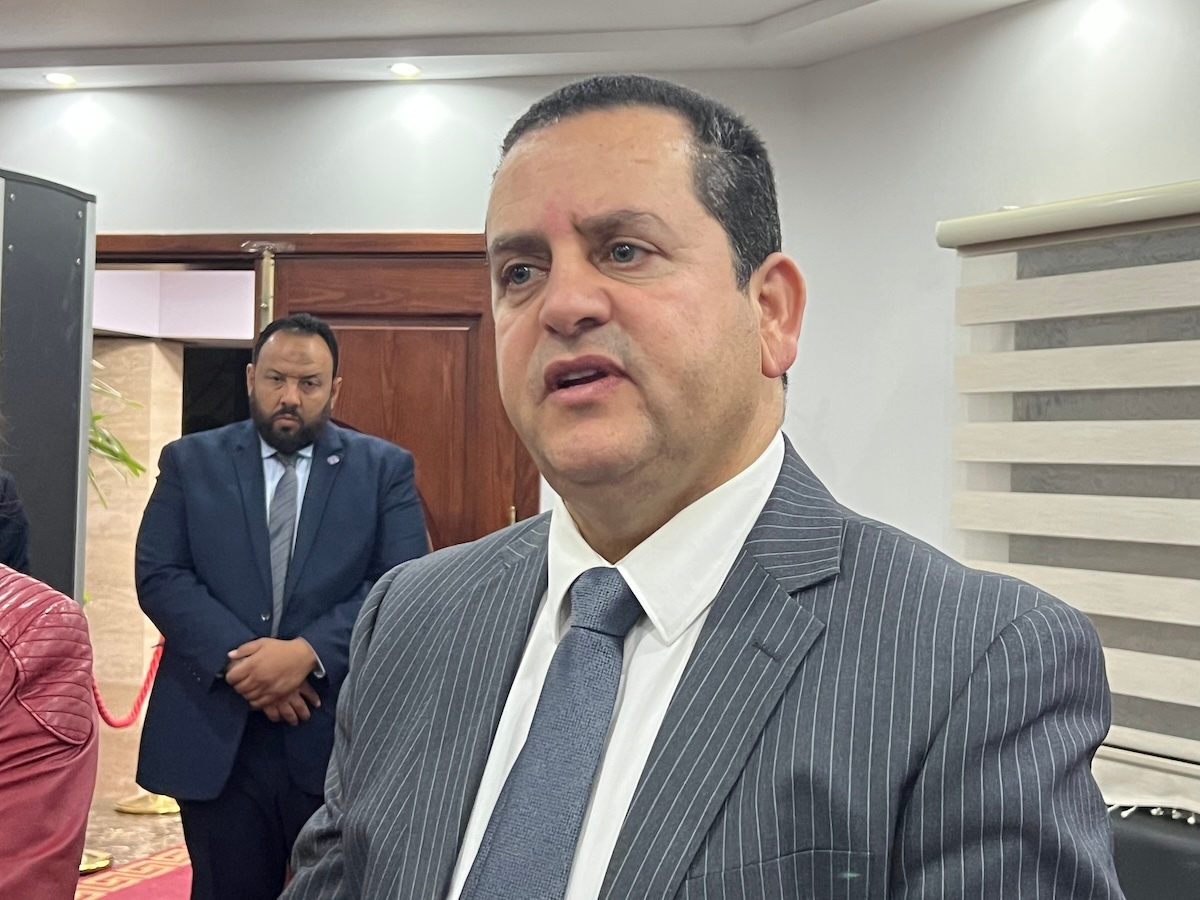
Spain has a great interest in Africa. How can Libya contribute to consolidating Spain's position in Africa?
We are preparing important infrastructures such as the port of Benghazi and another port in Surt. We have built a 650-kilometre motorway that connects with the neighbouring countries to the south of Libya. But the company that did it is not Spanish because they are not present here in Libya: the tender was won by an Emirati company. We have excellent relations with African countries because we are the gateway to North Africa. We are prepared to help Spain through our connections with the whole of Africa.
The latest information published in Spain talks about the possible opening of a Russian base in Tobruk. Is this true?
That is false: we are against the establishment of any foreign military base. We are in favour of collaboration and cooperation, of the independence and sovereignty of Libya. The supreme head of the army believes in the unification and independence of Libya. We, as a government, do not have in our roadmap the opening of any military base of any country in the world.
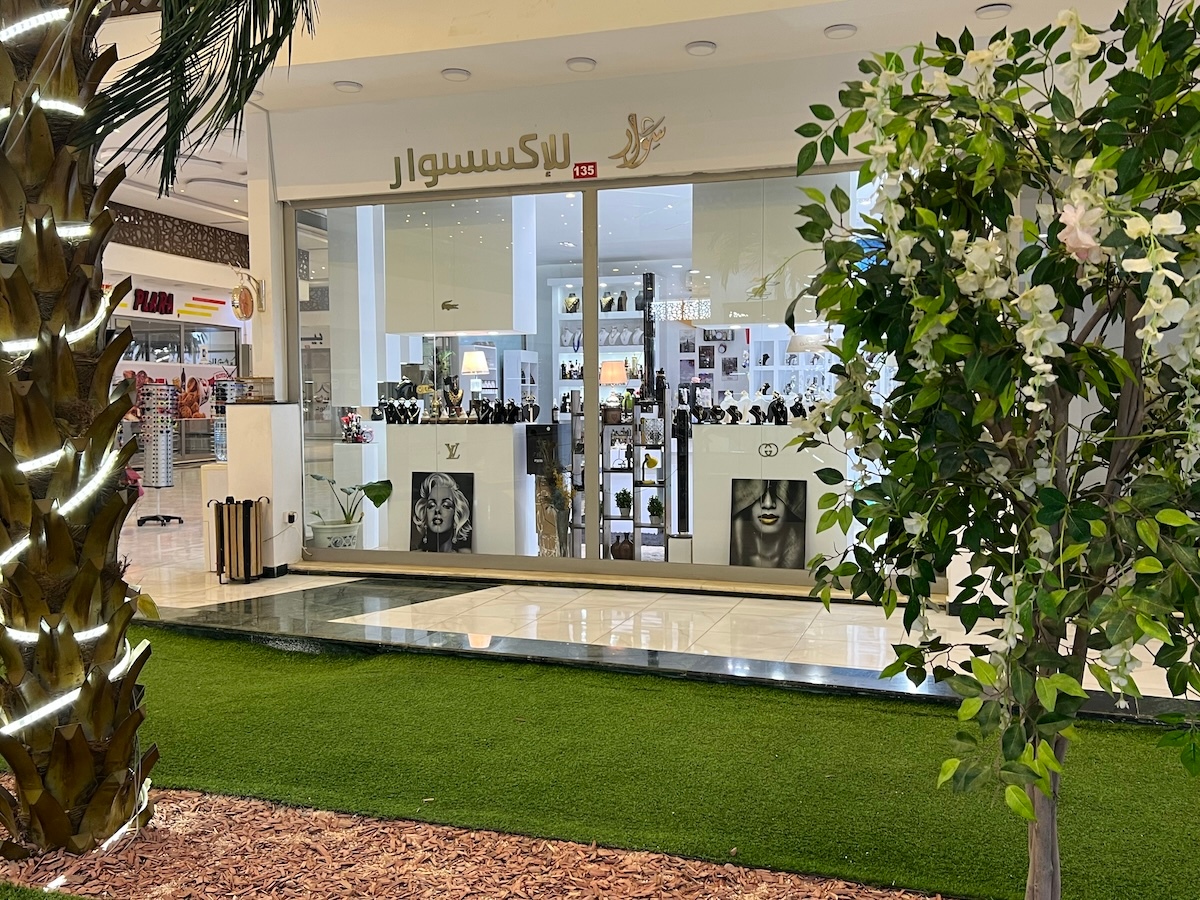
Can you tell us about Libya's relationship with EU countries?
Greece, Malta, France, Italy... all the European countries have come to Benghazi, as well as those from outside the European Union: Africans, Asians. Even Japan, which is on the other side of the world, has come here to resolve the crisis with Libya.
What message do you want to convey to the Spanish people?
Specifically, that the Civil Guard should not interfere in the political situation in Libya and should apologise to our people. And that they should apologise to the people and the Armed Forces of Libya. I'm going to give you another scoop: the President of the Libyan Parliament has sent a letter of protest to the President of the Spanish Congress. All we want is to ease tensions and normalise relations. We want collaboration and cooperation. We want a cultural relationship. We want economic relations. We want twinning between cities, between universities, between hospitals. We want Libyan students to study at Spanish universities and vice versa. We also want exchanges between Spanish and Libyan teachers.
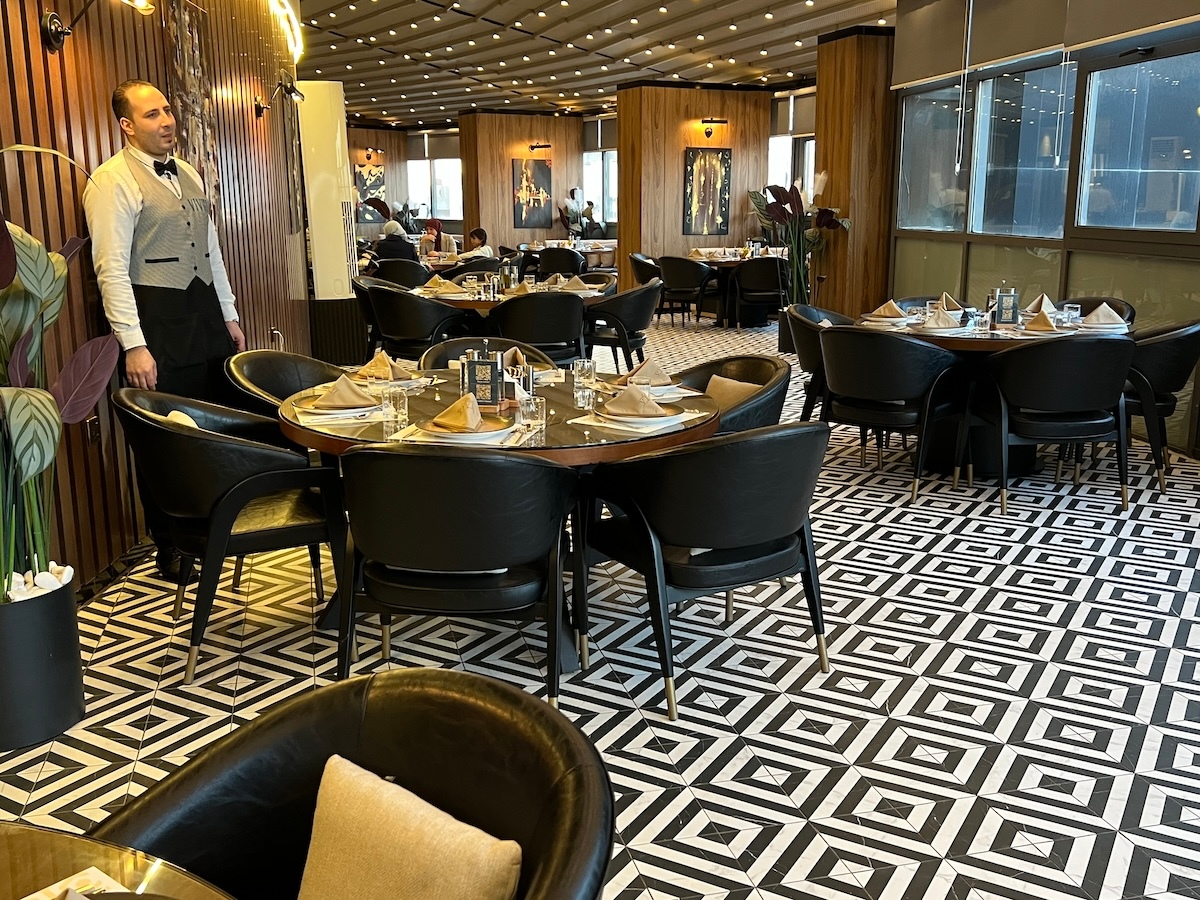
Create a Spanish-Libyan economic forum and organise a big Spanish products fair here, and create friendship groups between Libyan and Spanish parliamentarians, businessmen, chambers of commerce, autonomous governments... There are many things we can do together, but we must have the good will. In short, we are reaching out to Spain and are open to collaboration.


